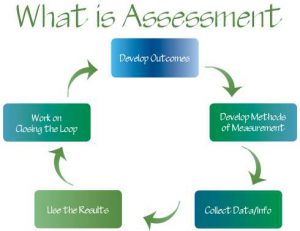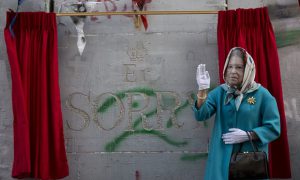
Via the powder blue Satan, an instant classic in the emerging genre of parody far superior to the original:
I was reminded of this when—I can see certain readers rolling their eyes already—I read the news, last September, that numerous California cities, including Oakland and San Francisco, had filed lawsuits against Exxon, BP, and several other oil companies. The cities argue that rising sea levels, caused by global climate change, driven by fossil fuel consumption, will cause billions of dollars in property damage, and that “big oil” should foot the bill for costly infrastructure projects to shore up below-sea-level neighborhoods and oceanside communities.
If you believe the science is settled and the models are correct, of course it makes sense to take a page from the “Big Tobacco” lawsuit playbook. If it were the case that Exxon and the others were acting in ways that could ruin much of the California coastline, with full knowledge of the certain results of their conduct, it would indeed be just to ask them to foot the bill for protecting our cities and communities.
But I can’t help but think of those Navy prognosticators, who probably knew more about computers than just about anyone else in the United States government but didn’t know what Silicon Valley was up to right at that very moment.
The only real way to push back against the gratuitous provocations of the NYT editorial page or the dogsh*t political coverage at NPR is to send it up, up and away. Merely disagreeing only confirms their primary, fundamental fallacy: “Hey! If both sides are criticizing us, we must be right!” – a sweet spot only further plaqued with the appearance of even-handed contrarianism. This is more like transmitting articles through a ridicule device. One can only hope it embarrasses the other Stephens and his colleagues, if for nothing else the flimsiness of their shoddy talents.


 Hilarity ensues as the Trump ministration launches a trial balloon for
Hilarity ensues as the Trump ministration launches a trial balloon for 


 So fB is headed for a showdown with the Mueller investigation, or at least the inauguration of a new transparency czar for the
So fB is headed for a showdown with the Mueller investigation, or at least the inauguration of a new transparency czar for the  Include our brains. This report about Houston from last year outlines how unchecked development remains a priority in the famously un-zoned city, creating short-term economic gains for some while
Include our brains. This report about Houston from last year outlines how unchecked development remains a priority in the famously un-zoned city, creating short-term economic gains for some while  In early September 2008, I drove down to Charleston to visit a cousin who had recently suffered a terrible accident. Throughout the drive I listened to extended public radio reports on an evolving calamity: the collapse of Lehman Brothers financial services firm. The horror that the government was going to allow such a large firm to go under was decorated with the baroque gadgetry of terms that would become more familiar in the coming years: credit default swaps, subprime mortgage lending, tranches, CDOs. The gore and detail of the cover that had been constructed around scams and fraud at the broadest level was audible in the voices of interviewers and guests. There was a tinge of disbelief within their attempts to explain what these terms meant and how they had gotten us all (!) into so much peril. It was as close to 1929 as we had come and potentially far worse – so extensively had the giant vampire squid of financial engineering welded its tentacles to every sector. Housing, banking, investing, construction, debt, bonds… this is business America now, and every other activity is vulnerable to its caprice. It was the stretch run of a presidential election as well; one candidate tried to suspend the campaign, the other fortunately tried to hold things together.
In early September 2008, I drove down to Charleston to visit a cousin who had recently suffered a terrible accident. Throughout the drive I listened to extended public radio reports on an evolving calamity: the collapse of Lehman Brothers financial services firm. The horror that the government was going to allow such a large firm to go under was decorated with the baroque gadgetry of terms that would become more familiar in the coming years: credit default swaps, subprime mortgage lending, tranches, CDOs. The gore and detail of the cover that had been constructed around scams and fraud at the broadest level was audible in the voices of interviewers and guests. There was a tinge of disbelief within their attempts to explain what these terms meant and how they had gotten us all (!) into so much peril. It was as close to 1929 as we had come and potentially far worse – so extensively had the giant vampire squid of financial engineering welded its tentacles to every sector. Housing, banking, investing, construction, debt, bonds… this is business America now, and every other activity is vulnerable to its caprice. It was the stretch run of a presidential election as well; one candidate tried to suspend the campaign, the other fortunately tried to hold things together. The stupidity of millions, millions of individually stupid decisions, has brought a spiteful revolution to its denouement. Or a screaming kid to its mall, whichever you prefer.
The stupidity of millions, millions of individually stupid decisions, has brought a spiteful revolution to its denouement. Or a screaming kid to its mall, whichever you prefer.